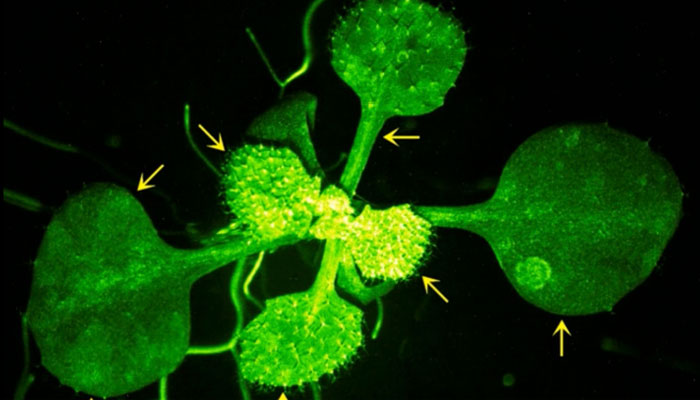WATCH: Scientists capture plants talking to each other for first time
Scientists first discovered these plant defences in 1980, but now they have real-time footage showing this communication
A team of Japanese scientists have made an incredible discovery, capturing real-time footage of plants "talking" to each other", Earth reported.
The research, headed by molecular biologist Masatsugu Toyota from Saitama University, was published in the journal Nature Communications.
The study was carried out by observing undamaged plants responding to volatile organic compounds (VOCs) emitted by other plants experiencing mechanical damage or insect attacks.
The study involved setting up caterpillars on leaves while the responses of a second, insect-free plant were placed nearby.
These plants weren't typical, they were genetically modified to have biosensors in their cells that fluoresced green in response to calcium ion inflow. Human cells also employ calcium signalling for communication.
How do plants communicate?
The use of chemical signals is fundamental to plant communication. VOCs serve as messages to neighbouring plants. They can transmit information about environmental conditions, such as drought or pest attacks.
For example, when a plant is attacked, it emits specific VOCs that can be detected by nearby plants.
After getting the signal, these nearby plants strengthen their chemical defences in case another attack occurs.
Plants also communicate through electrical signals — a method reminiscent of the nervous system in animals.
When a plant is stressed or damaged, it generates electrical impulses that travel throughout its structure.
These signals can prompt physiological changes in the plant, such as closing stomata to prevent water loss during drought conditions.
Scientists first discovered these plant defences in 1980, but only now do they have real-time footage showing this communication.
-
Shanghai Fusion ‘Artificial Sun’ achieves groundbreaking results with plasma control record
-
Polar vortex ‘exceptional’ disruption: Rare shift signals extreme February winter
-
Netherlands repatriates 3500-year-old Egyptian sculpture looted during Arab Spring
-
Archaeologists recreate 3,500-year-old Egyptian perfumes for modern museums
-
Smartphones in orbit? NASA’s Crew-12 and Artemis II missions to use latest mobile tech
-
Rare deep-sea discovery: ‘School bus-size’ phantom jellyfish spotted in Argentina
-
NASA eyes March moon mission launch following test run setbacks
-
February offers 8 must-see sky events including rare eclipse and planet parade












